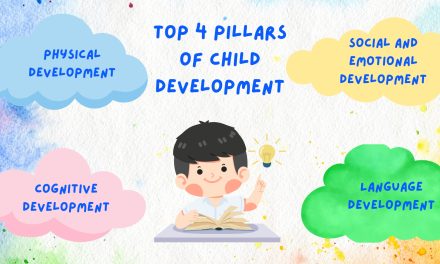When building self-esteem and resilience in children, parents often feel like they’re walking a tightrope. It’s easy to slip into habits that could hinder their growth—after all, we all want our kids to feel confident and strong, right?
One classic mistake is overloading them with praise until it sounds like you’re auditioning for “Parent of the Year.” Sure, everyone loves a good compliment, but when praise becomes excessive or unrealistic, it can lead to fragile self-esteem and lofty expectations that no one can live up to.
Conversely, constantly criticizing or comparing them to others can be equally damaging, making them feel like they’ll never measure up. Finding the perfect balance between support and constructive feedback is the secret to helping your child grow with a healthy sense of self-worth and resilience!
Overpraising or Overprotecting
If you're always showering your child with excessive praise or protection, it might actually do more harm than good when it comes to their self-esteem and ability to face challenges. While giving positive reinforcement is great, going overboard with praise could backfire.
When kids get way too much praise, they can struggle with handling criticism or setbacks because they've come to expect constant approval. This can make it tough for them to bounce back and adapt in situations where everything doesn't go perfectly.
To help your child thrive, it's important to find that sweet spot between recognizing their efforts and offering constructive feedback. Consider giving specific praise for their accomplishments and gentle pointers on where they can improve. This way, you’ll help them feel proud of themselves without painting an overly rosy picture.
Comparing Children to Others
When you compare children to others, it can really mess with their self-worth, self-perception, and sense of belonging. Every child is special in their own way, so it's important to help them embrace their unique strengths and qualities.
As a parent or caregiver, it's on you to create an environment that celebrates each child's individuality. By focusing on what makes them special, kids are more likely to see themselves in a positive light. This will also help them feel like they belong in their families and communities.
Constantly measuring kids against their peers can create unrealistic expectations. In fact, it can make them feel like they're not good enough. Instead, try to promote an attitude of valuing differences and uniqueness. This way, children can grow their confidence and self-esteem.
Not Allowing Children to Experience Failure
Shielding your child from failure may seem like the protective thing to do. However, this actually deprives them of valuable opportunities to develop coping skills, build resilience, and learn from setbacks. As parents, it's important to recognize that failure is not the enemy—it's a crucial part of their growth journey.
Allowing your child to experience failure in a supportive way helps them cultivate resilience and strengthens their problem-solving abilities. Instead of stepping in to fix everything, try to view failure as a learning opportunity.
By offering reassurance, discussing the lessons learned, and emphasizing perseverance, you’ll help them bounce back stronger. In fact, this allows them to develop a mindset that’s ready to face life’s challenges.
Wrap Up
Building self-esteem and resilience in children requires balance and care. While praise and protection are important, too much can undermine their ability to handle setbacks. Comparing children to others only diminishes their unique qualities and can harm their self-worth.
Allowing kids to experience failure helps them develop resilience and problem-solving skills. With the right guidance, you can help your child grow into a confident, resilient individual ready to take on life’s challenges.
Tired of walking the tightrope of parenting? Discover a treasure trove of unique strategies on Marvelus Kids to help you nurture your child’s self-esteem and resilience—no more guessing games!









